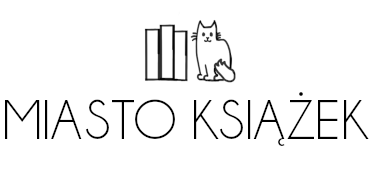Jakoś umknął mi fakt, że kilka dni temu ogłoszono finalistów John Llewellyn Rhys Prize. Jest to dość znana nagroda, przyznawana autorowi pochodzącemu z Wielkiej Brytanii lub z kraju Wspólnoty Brytyjskiej, który nie ukończył jeszcze 35 lat. Nagroda ma upamiętniac pisarza, Johna Llewellyn Rhys, który zginął w czasie II wojny światowej.
Tegoroczni finaliści ( z braku czasu opisy anglojęzyczne niestety):
Biały tygrys Aravind Adiga – nie trzeba nawet opisywać chyba…
The Broken Word Adam Foulds – Kenya in the 1950s: one of the darkest episodes in British colonial history. Sporadic attacks by dispossessed Kikuyu on the British now occupying their land escalate as the colonialists panic and drive most of the Kikuyu population into prison camps.
Adam Fould’s stunning poetic sequence follows the experience of Tom, recently returned to his family’s farm in Kenya and propelled into the violence of the Mau Mau uprising. It then mutates into a meditation on the inheritance of conflict and the destruction of innocence.
The Secret Life of Words Henry Hitchings – The author of Dr Johnson’s Dictionary returns with a magisterial and entertaining study of how English became English, and why it has absorbed words from more than 350 other languages, many originating from the most unlikely places.
From the Norman Conquest to the present day, Hitchings narrates the story of English as an archive of our human experience, peppering his text with hundreds of examples.
The Bloody White Baron James Palmer – Few people will have heard of Baron Ungern-Sternberg, a violent, anti-Semitic fanatic who took over Mongolia in 1919 with a ragtag force of White Russians, Siberians, Japanese and native Mongolians, but few will forget him after reading James Palmer’s full-blooded biography.
The Baron’s beliefs were a cocktail of the mystical and esoteric, combined with the vengefulness of Mongolian Buddhism. After the war, in which he fought with reckless bravery, Ungern spiralled into ever darker obsessions and treated his enemies ever more cruelly. In the end, Trotsky had to send the Red Army after his desperate band.
God’s Own Country Ross Raisin – Expelled from school for an incident that shadows him still, Marsdyke works on his father’s hill farm on the Yorkshire Moors. From a distance, he watches as outsiders buy holiday cottages and flashy new bars open in the local towns.
When a new family moves into the area, Marsdyke begins a friendship with the defiant teenage daughter, but as his mind descends into a state of dangerous delusion, their relationship descends into something more disquieting.
Replete with dialect (‘I glegged another look at my watch’), Raisin’s dark tale has an unhinged quality that never steps outside its world. Nothing is superfluous in this tense, unsettling and at times very funny novel.
Selling Your Father’s Bones Brian Schofield – In the summer of 1877, around seven hundred members of the Nez Perce Native American tribe set out on an epic 1,700-mile journey through the American West. Forced from their homeland by the great nineteenth-century wave of settlement from the east, the Nez Perce passed through mountains, forests, badlands and prairies and had to fight battles and skirmishes with the pursuing United States Army as they raced towards the Canadian border.
Schofield retraces this remarkable exodus, telling not only the story of the tribe’s fight for survival, but the also the destructive legacy of a westward migration initially predicated on patriotism and religios zeal.
Nagrodzone książki są zwykle wydawane w Polsce, z tego względu chyba nie ma co kibicować Adidze, niech się kolejne tłumaczenie lepiej pojawi:)

No Comments